Arlo Essential vs Arlo Pro 4: which wireless security camera is right for you?
Arlo's budget wireless security camera is a great all-rounder but the Arlo Pro 4 has better eyesight

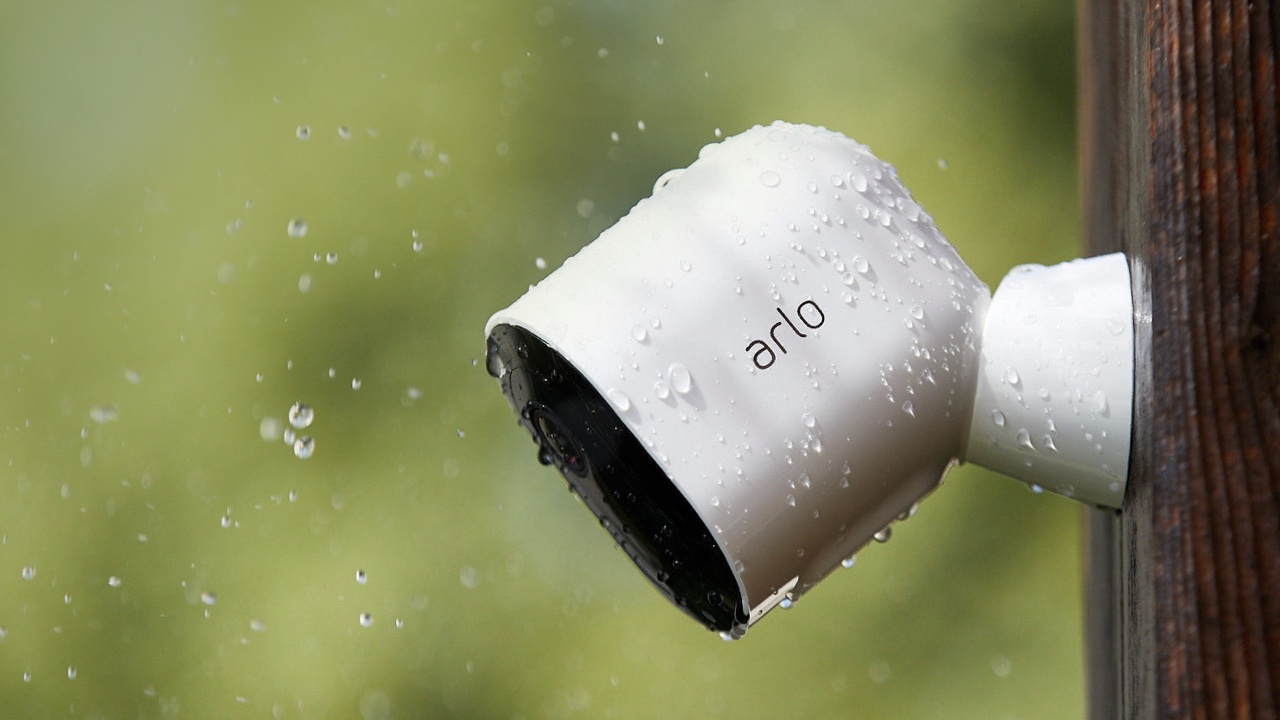
If you’re looking for the best security cameras, Arlo has several options for you, and the big question for 2022 is Arlo Essential vs Arlo Pro 4. Both are excellent new weatherproof wireless security cameras that don’t need a hub: they connect directly to your Wi-Fi and work with Alexa, Google, HomeKit and IFTTT so you can control them from pretty much anything, and they both use the same solid and straightforward smartphone app.
They have motion detection and night vision as well as a bright light and siren to deter unwanted visitors, and if you take out a subscription they can even tell the difference between dodgy people, delivery drivers and dogs. But there are a few important differences between them, including the price. Should you go for the budget Arlo Essential, one of the best cheap security cameras around, or is the extra resolution of the Arlo Pro 4 worth paying a little extra for? Let’s find out.
Arlo Essential vs Arlo Pro 4: Price
The Arlo Essential Spotlight Camera is $129 / £109 / AU$199 for a single camera kit or $299 / £299 for three cameras. The three-camera bundle isn’t available in Australia but you can get a twin pack for AU$399.
The Arlo Pro 4 starts at $179 for a single camera, rising to $499 for three. UK and Australian pricing hasn’t yet been confirmed.
If you’re in the US, Arlo offers a 25% discount scheme to first responders, nurses, military and teachers.
Like most wireless security cameras the Arlo Essential and Arlo Pro 4 are sold on the assumption that you’ll also take out a storage plan that unlocks their full range of features. If you don’t you still get live streaming video and notifications but you won’t be able to use the more advanced features such as people or package detection.
Arlo Essential vs Arlo Pro 4: Image quality
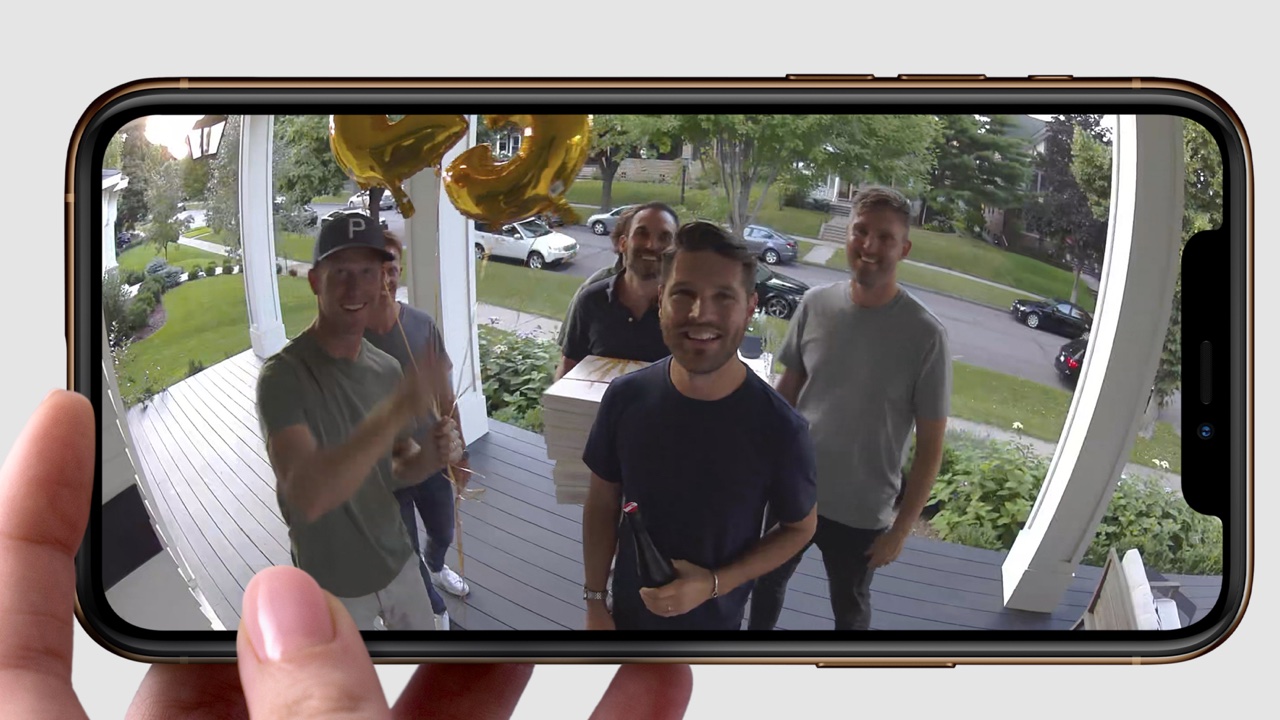
The Arlo Pro 4 delivers higher resolution recordings than its sibling.
The Arlo Essential has a 1080p camera with up to 12x digital zoom, a 130º diagonal field of view and dual 850nm LEDs for night vision of up to 25 feet.
Get all the latest news, reviews, deals and buying guides on gorgeous tech, home and active products from the T3 experts
The Arlo Pro 4 has a 4MP sensor with "2K video" (which is 2560x1440 in practice), 1080p or 720p video. It has HDR, offers H.264 or the smaller H.265 encoding, a 160-degree field of view and 12x digital zoom. It has the same powerful IR LEDs as the Essential for night vision.
In addition to the better video resolution, the Arlo Pro 4 has another trick up its sleeve: auto-zoom, which enables you to get a better look at moving objects.
Arlo Essential vs Arlo Pro 4: Detection smarts
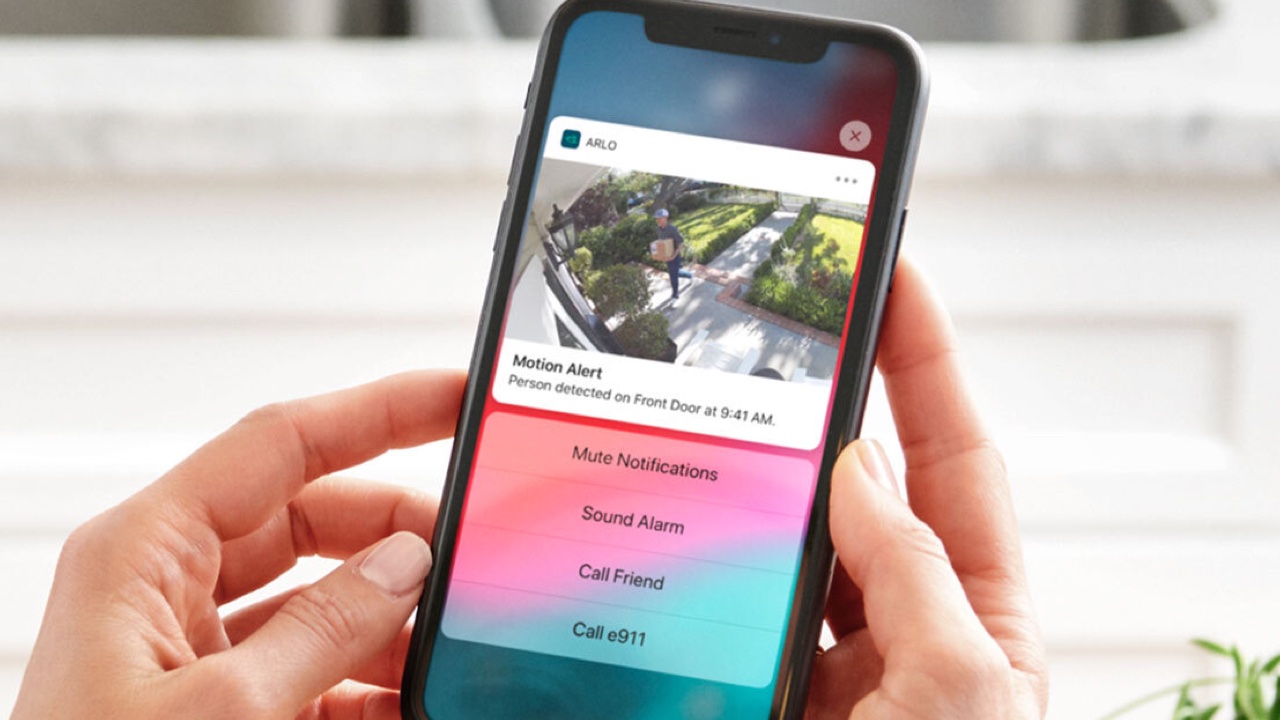
The Arlo app gives you lots of options immediately when it spots something.
The motion detector in the Arlo Essential has a 110° horizontal view and can trigger the integrated spotlight when it spots somebody who shouldn’t be there. It also has a loud siren that can be triggered automatically or manually via its app. If you subscribe to the Arlo Smart cloud service, you can also get person, vehicle and animal detection and package detection, so when you get notified the camera has seen something, you'll also know what it has seen, which can help avoid needless panics.
The motion detector in the Arlo Pro 4 has a wider view – 130° compared to 110° – and the same Arlo Smart detection options if you take out a subscription.
Both cameras here have two-way audio so you can talk to whoever the camera spots, for example by talking to a delivery driver when you can’t be there.
In the US, both cameras have e911 support. This enables you to contact the emergency despatchers closest to the address listed in your Arlo app when you spot suspicious activity.
Arlo Essential vs Arlo Pro 4: Storage & battery life
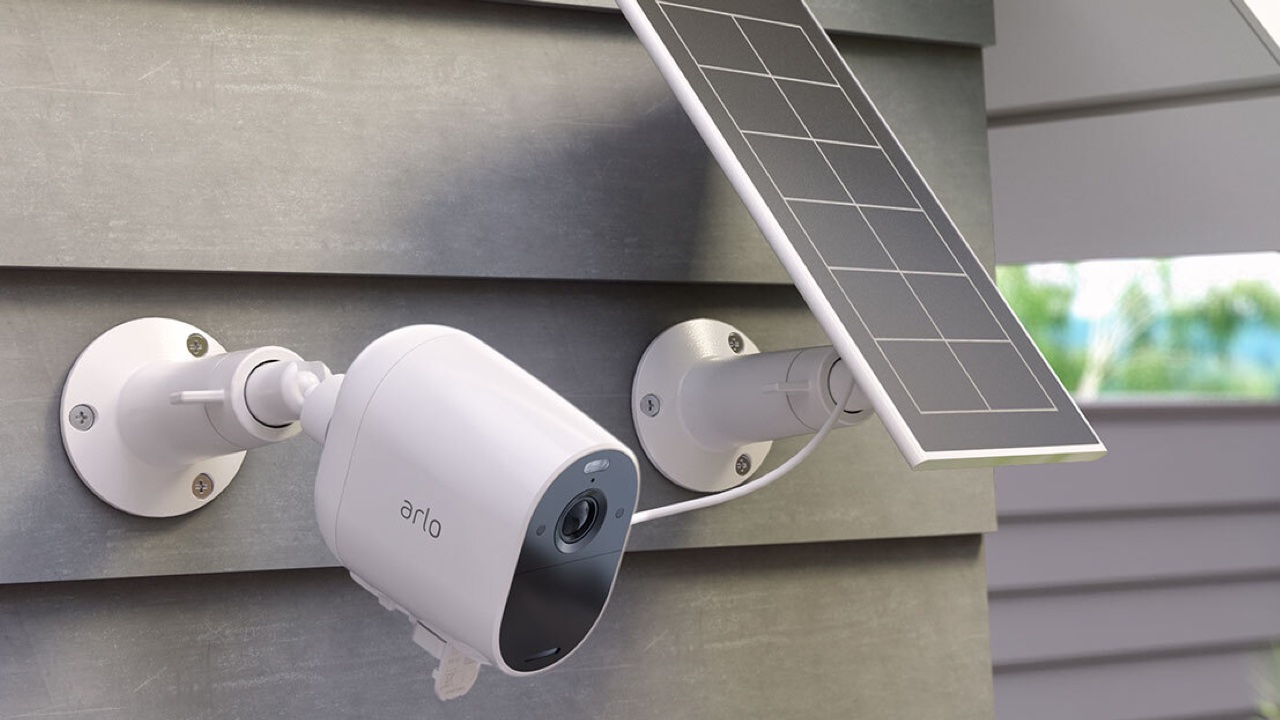
Optional solar charging extends the battery life.
Both the Arlo devices here use cloud storage: if you don’t subscribe to an Arlo Smart plan and don’t have an Arlo Smart Hub with local storage, you’re limited to live streaming only. The Premier Plan, the cheapest Arlo Smart option, is $2.99 / £2.49 / AU$4.49 a month for one camera or $9.99 / £7.99 / AU$14.99 for up to 5 cameras and gives you 30 days of cloud-based storage. If you want CCTV-style continuous recording, that starts at $9.99 / £6.99 / AU$12.99 per month.
The battery in the Arlo Essential should last for up to six months between charges, and there’s an optional solar panel that you can use to keep it topped up. The Pro 4 has the same battery life and the same optional solar charger.
Arlo Essential vs Arlo Pro 4: Verdict
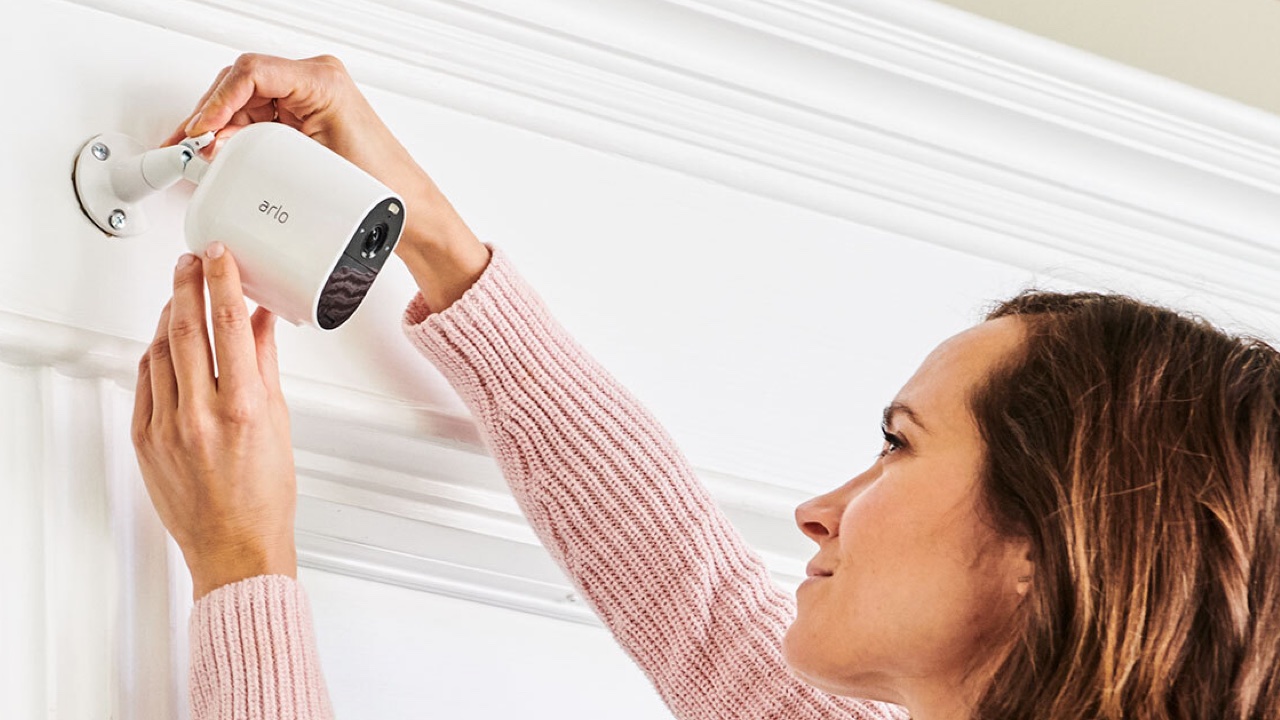
Arlo's wireless security cameras are incredibly easy to install and set up.
Both of these cameras offer CCTV-style coverage without the expense or installation, and they both do a very good job – although we think that without the optional subscription plan they’re limited in their detection ability, so you should factor the cost of a subscription into your budget.
If you're happy paying less and having video that's not quite as sharp, the Arlo Essential is a very good buy. It has the same smart features as its more expensive sibling, and while 1080p video isn’t as strong as the Pro’s 2K video, it’s still very good for such a small camera. The lower per-camera price means it’s a much more cost-effective way to get a multi-camera security setup too.
If you can afford it, though, the Arlo Pro 4 would be our pick: it has better eyesight, with a wider field of view and a much more detailed image that enables you to see details that the Essential might miss. Better image quality doesn’t mean more expensive storage: 2K video is included in the cheapest Arlo Smart plan.
Writer, musician and broadcaster Carrie Marshall has been covering technology since 1998 and is particularly interested in how tech can help us live our best lives. Her CV is a who’s who of magazines, newspapers, websites and radio programmes ranging from T3, Techradar and MacFormat to the BBC, Sunday Post and People’s Friend. Carrie has written more than a dozen books, ghost-wrote two more and co-wrote seven more books and a Radio 2 documentary series; her memoir, Carrie Kills A Man, was shortlisted for the British Book Awards. When she’s not scribbling, Carrie is the singer in Glaswegian rock band Unquiet Mind (unquietmindmusic).
